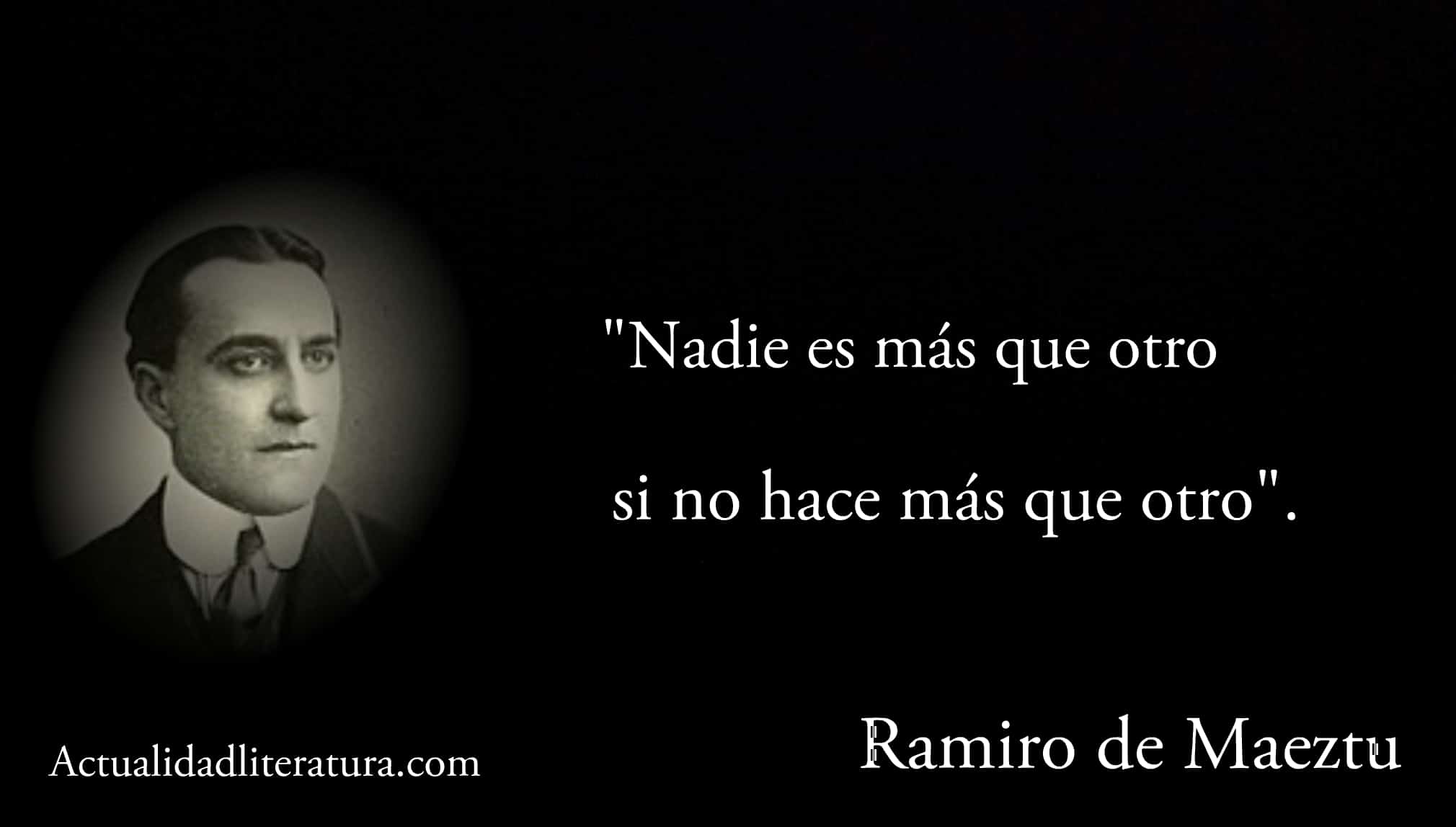
Phrase by Ramiro de Maeztu.
Ramiro de Maeztu y Whitney is one of the most controversial names in Spanish political history at the end of the XNUMXth century and early twentieth century. He was born in Vitoria, Basque Country, on May 4, 1874. He was the son of Manuel de Maeztu y Rodríguez, a rich Cuban landowner from Cienfuegos. His mother was Juana Whitney, daughter of a British diplomat, born on the French shores of Nice.
In the workplace, he stood out as a journalist (self-taught). While he ventured into poetry, a novel, and a play, The bulk of his literary work is made up of essays and opinion articles. These he wrote for different media throughout his long career. He was shot in 1936 at the hands of the Republican command, at the dawn of the Civil War.
Biography of Maeztu: a life full of changes and transfers
Maeztu's political and literary history seems to vindicate the inherent right of each individual to change his mind as many times as necessary. This character spent the end of his adolescence and the first stage of adult life in Cuba. There, he tried (unsuccessfully) to refloat his father's business. Later, he settled in Bilbao at the request of his mother, where he began his journey in journalism.
Previously he had time to live in New York and Paris. His first collaborations are curious when analyzing in retrospect how his thinking would evolve. During this stage —decade of 1890— he wrote for different leftist media. Among those, The Socialist, served as an instrument of public dissemination of the Spanish Socialist Workers Party.
First political lines
Anarchist in his beginnings, Ramiro de Maeztu was migrating towards less radical ideas such as Worker and Reform Socialism. Later, He was part of the Generation of '98, an intellectual group with a marked pessimism regarding the future of Spain. Especially after the losses to the US detriment of its last overseas territories: Cuba, Puerto Rico, the Philippines and Guam.
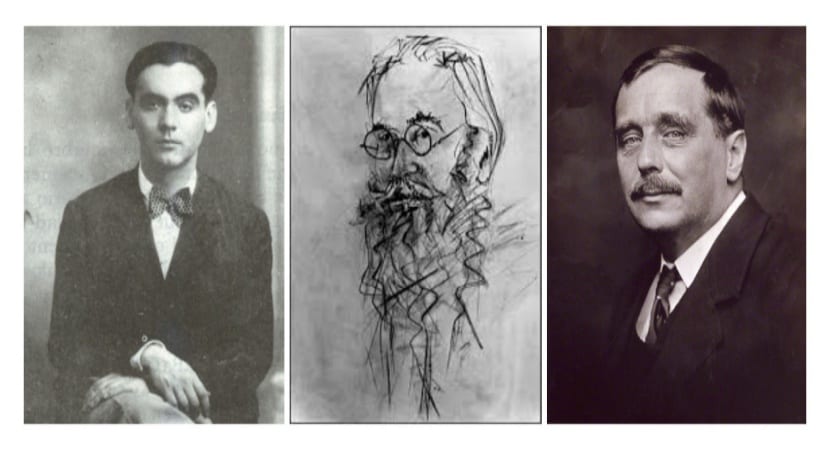
At the end of the Great War, Ramiro de Maeztu lived for three decades in London. In the British capital he served as a correspondent for The Correspondence of Spain, The new World y The Herald of Madrid. So, their ideological tendencies veered to the right; he was delighted with the functioning of the political system and the English model of life.
From conservative to ultra-conservative
By the third decade of the XNUMXth century, he settled again in Spain. The old promoter of socialism had definitely been left behind. Not only did he come to deny that line of thought, but he also defended diametrically opposite positions in some cases. Well, he became a convinced militarist, defender of morality and good manners, anchored in Catholic doctrine for it.
During the dictatorship of Primo de Rivera - which he defended from the beginning - he served as extraordinary ambassador and plenipotentiary of Spain in Argentina. The event that marked his career would take place in the South American nation: he met Zacarías de Vizcarra y Arana, creator of the concept of Hispanidad.
Main works of Ramiro de Maeztu: the apostle of Hispanidad
Maeztu not only shared the ideas of this Jesuit priest, he would end up appropriating them and spreading them with great enthusiasm. When the dictatorship fell and the Second Republic was established, he resigned as a diplomat in Buenos Aires and returned to Spain. In his native country, he became one of the key figures in the diatribe between republicans and monarchists.
Founds the magazine Spanish Action, publication where his thoughts on Hispanidad appeared. Roughly speaking, it is the communion of Spain and its former colonies, around the Spanish language and the Catholic religion. At the same time, he defended the need to restore the crown.
Maeztu's most controversial ideas
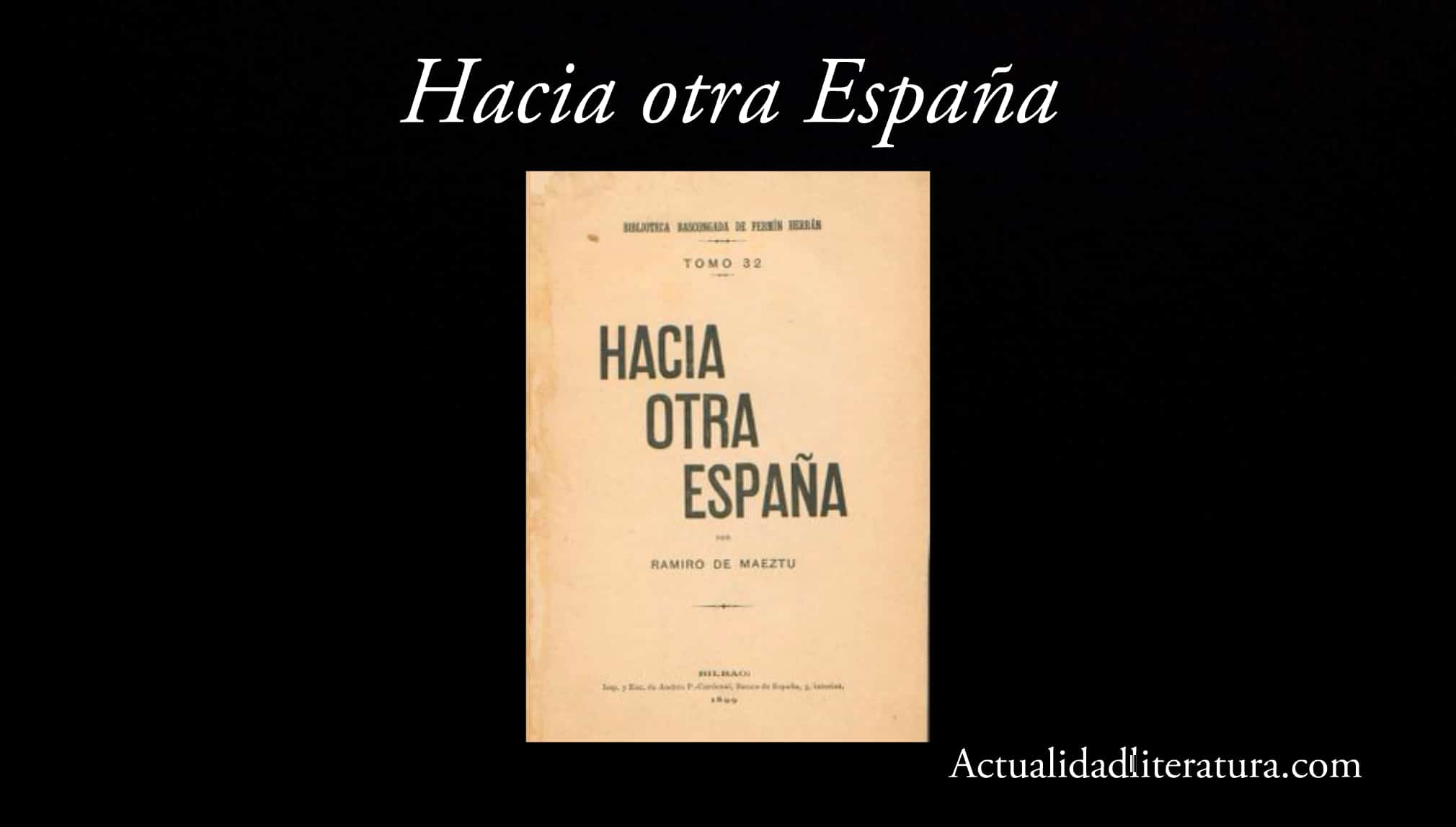
Towards another Spain.
You can buy the book here: No products found.
During this time, Maeztu declared himself an admirer of Adolf Hitler. Accordingly, he clearly expressed his hope that a movement similar to the Nazi Party would triumph in Spain. In the same way, he vindicated the slogans related to white racism. In his writings, he even qualified the "oriental" peoples and any person whose complexion was not clear, as "inferior races."
According to the intellectual from Vitoria, minor ethnic groups could merely be useful to feed the conception of Hispanidad, but without major contribution. Many of those views appeared in the form of editorial notes when Maeztu was editor of the magazine. Spanish Action. Later, they were compiled in his most important and discussed book: The defense of Hispanidad.
La puddening de la Spanishness
It is a virtuous text in terms of handling the essay and the editorial; journalistic, but with some moles. Because In the core of the plot, the author changes the slogans of the French Revolution, "liberty, equality and fraternity", for "service, hierarchy and humanity". In this way, Maeztu showed his arrogant posture when he felt he had the full right to transgress those ideals.
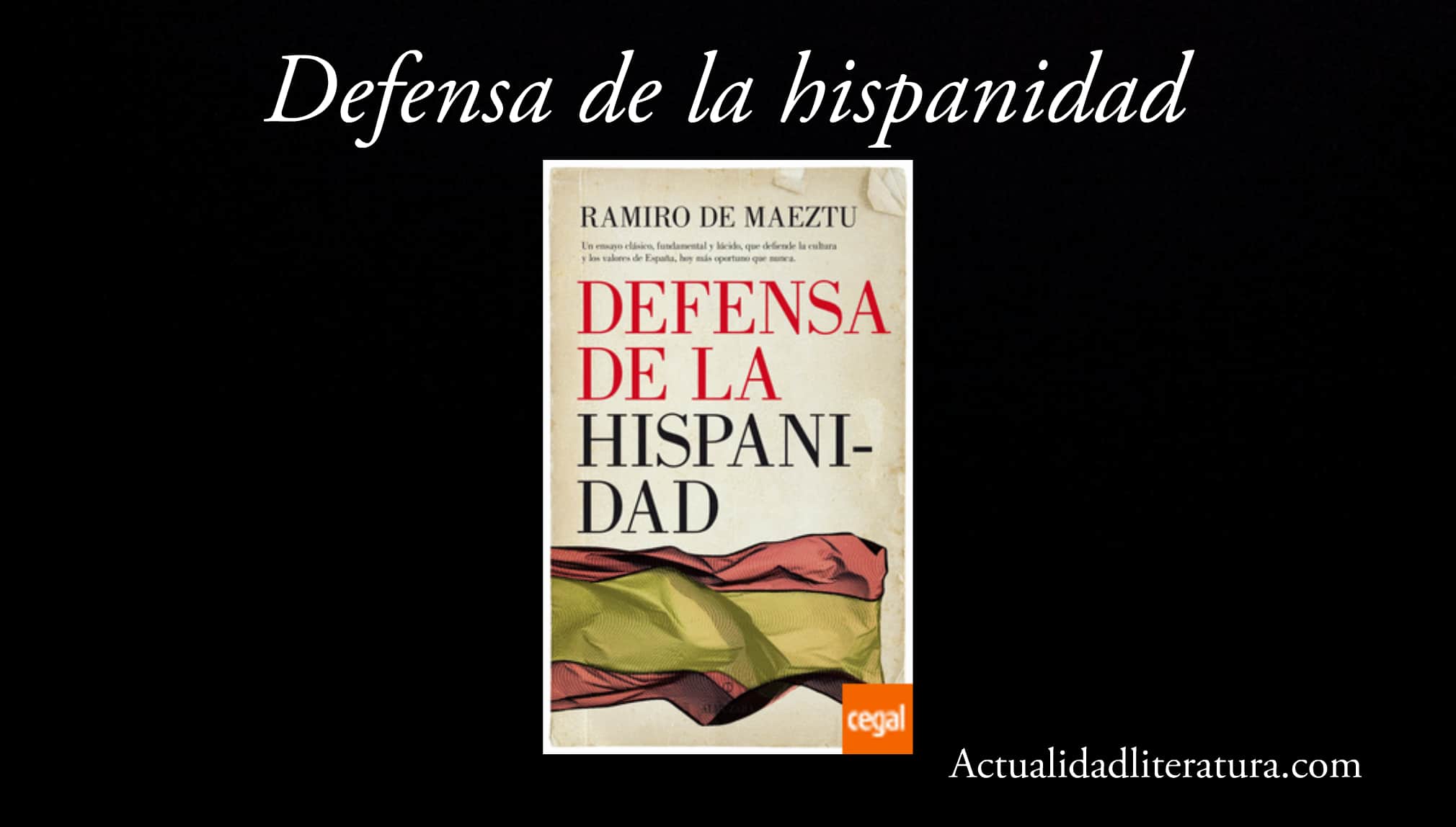
Defense of Hispanity.
You can buy the book here: Defense of Hispanic Heritage
Eventually, The defense of Hispanidad it became the ideological base of the anti-republican right and ultra-conservative Francoism. In fact, the dictator Francisco Franco himself - albeit belatedly - would end up recognizing his contributions by awarding him in 1974 the distinction of Count of Maeztu.
Other works by Ramiro Maetzu
The reverential meaning of money, the complexities of the banking system
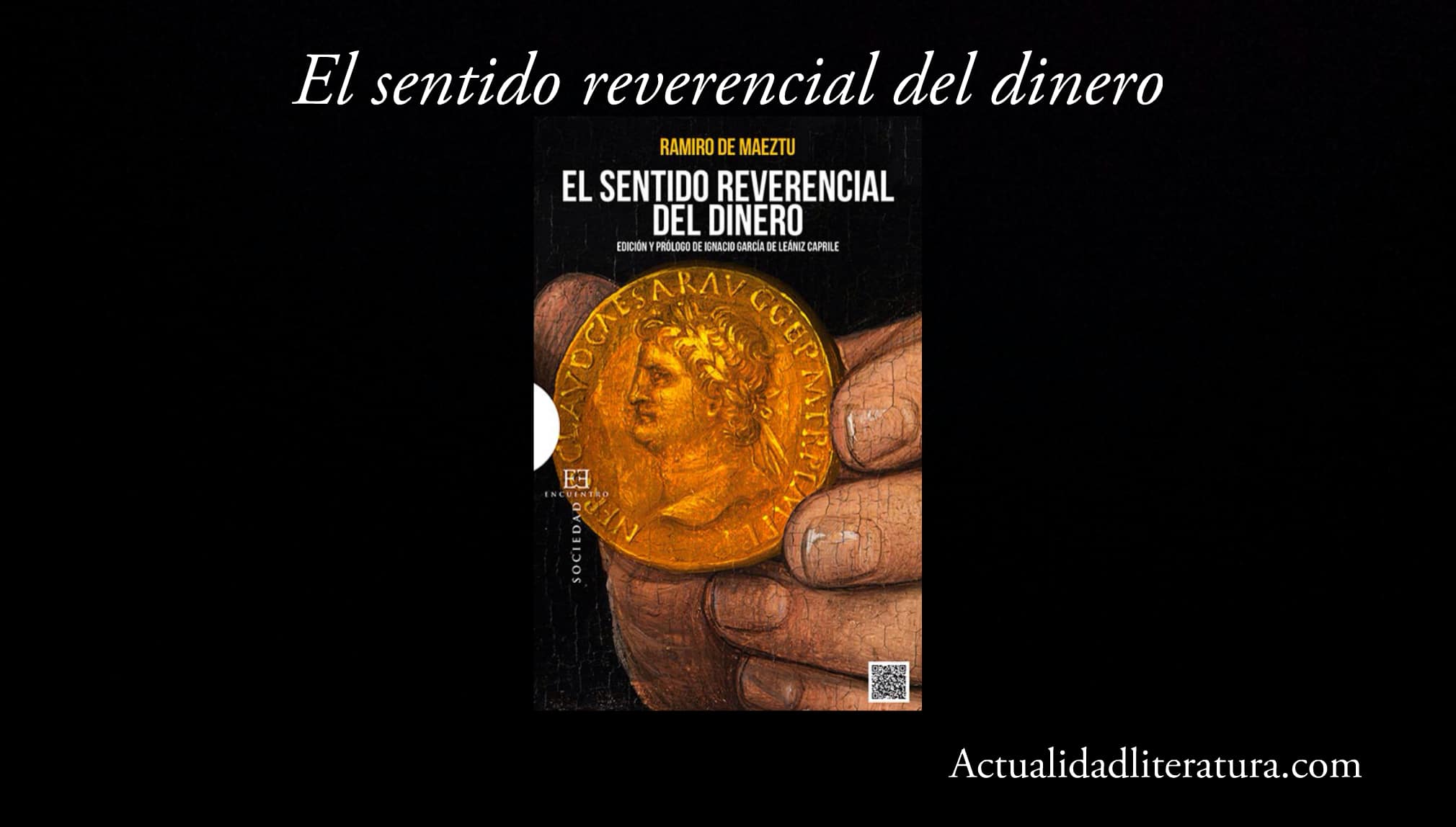
The reverential meaning of money.
You can buy the book here: The reverential meaning of money
The reverential meaning of money is another compilation of various articles on financial activity, produced between 1923 and 1931. This title is an analysis still in force on the functioning of the economy of Spain, reviewing the complexities of the banking system, the state and the family.
The crisis of humanism
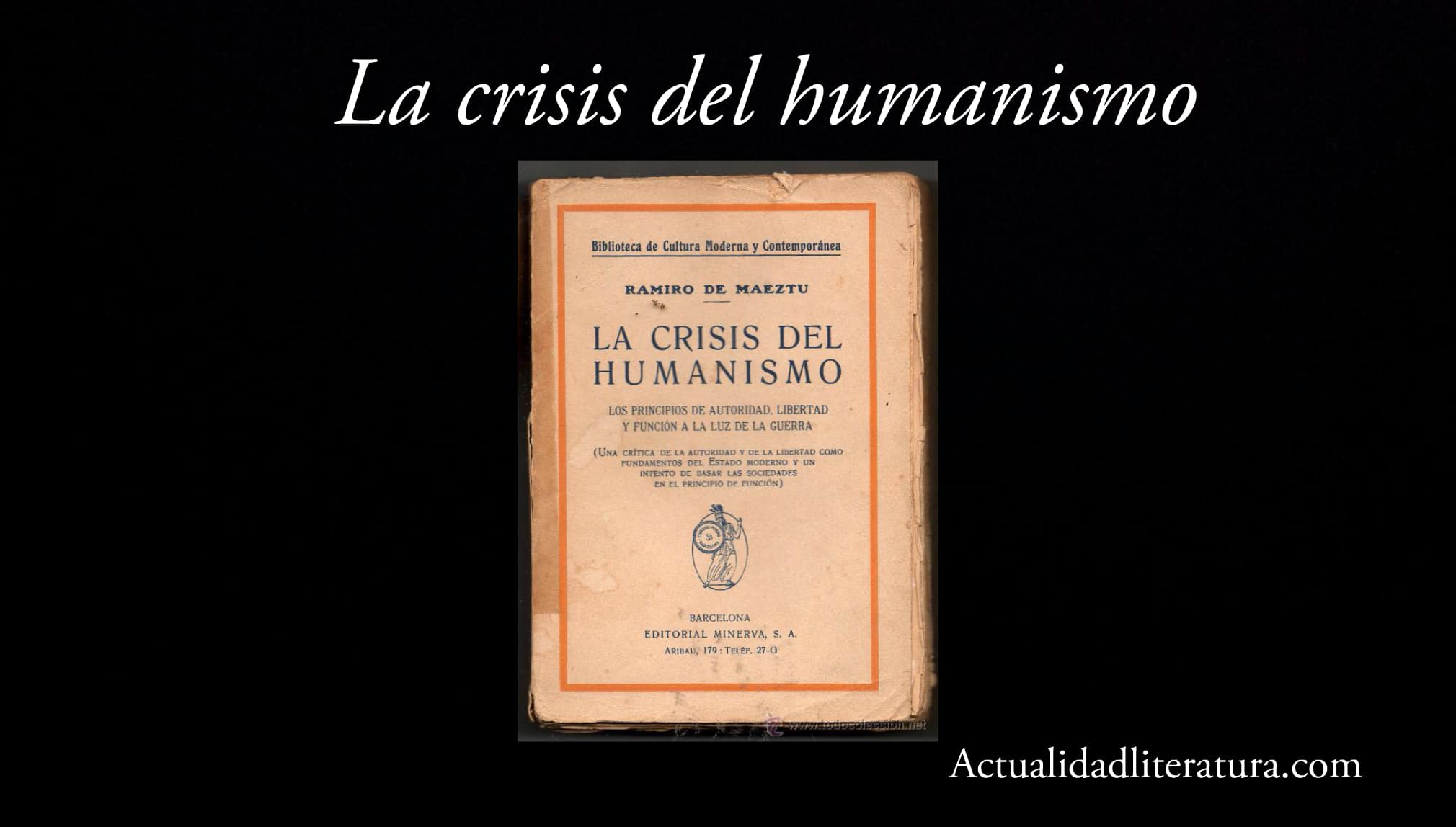
The crisis of humanism.
You can buy the book here: No products found.
Likewise, it stands out within the Maeztu catalog, The crisis of humanism (1919). Actually, the original publication is from the year 1916, during its "British period" (of liberal thought) under the title of Authority, liberty and function in the light of the war. Its content delves into the notions of authority and freedom of its time in light of war conflicts on a global scale.
Chronicles of the Great War, The Great War from the perspective of Maeztu
Ramiro de Maeztu witnessed first-hand one of the warlike events that left the most scars on the “old continent”. His journalistic work - both in British high society and as a field correspondent - made him an “authoritative voice” on the greatest armed confrontation in human history… to that date.
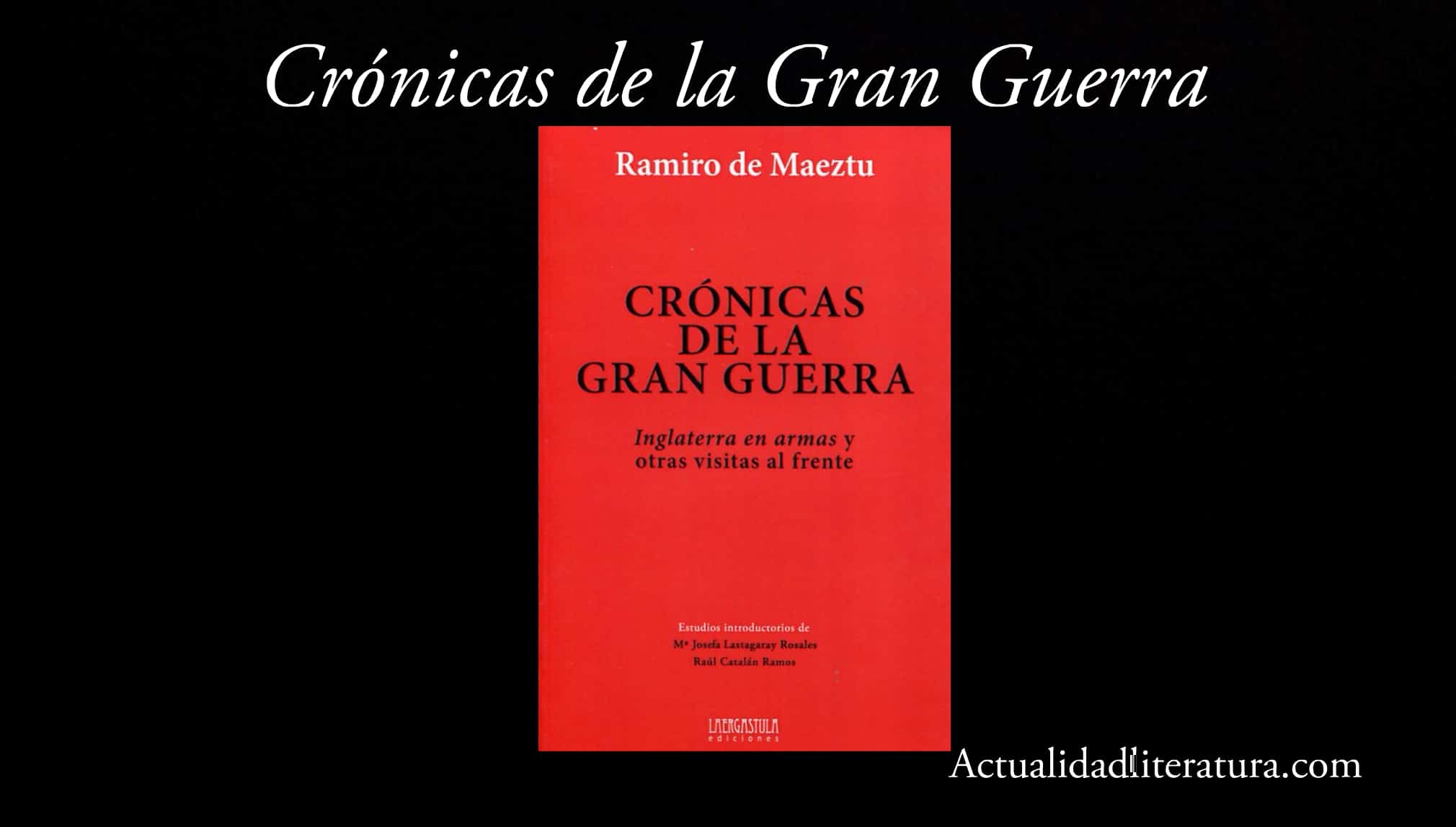
Chronicles of the Great War.
When the armed conflict ended in 1918, no one thought of a second confrontation. These experiences were reflected in Chronicles of the Great War, a compendium in the first person about the vicissitudes of the British forces. He also included his perspective on the entire political movement aroused during the conjuncture.
The role of art and literature
Without moving away from his political actions, Maeztu also wrote about the artistic fact. In many of his works he claimed (through classic characters from Spanish literature) the role of art in the elaboration of a national identity. Namely, the intellectual from Vitoria was a strong opponent of the creation of "art for art's sake."